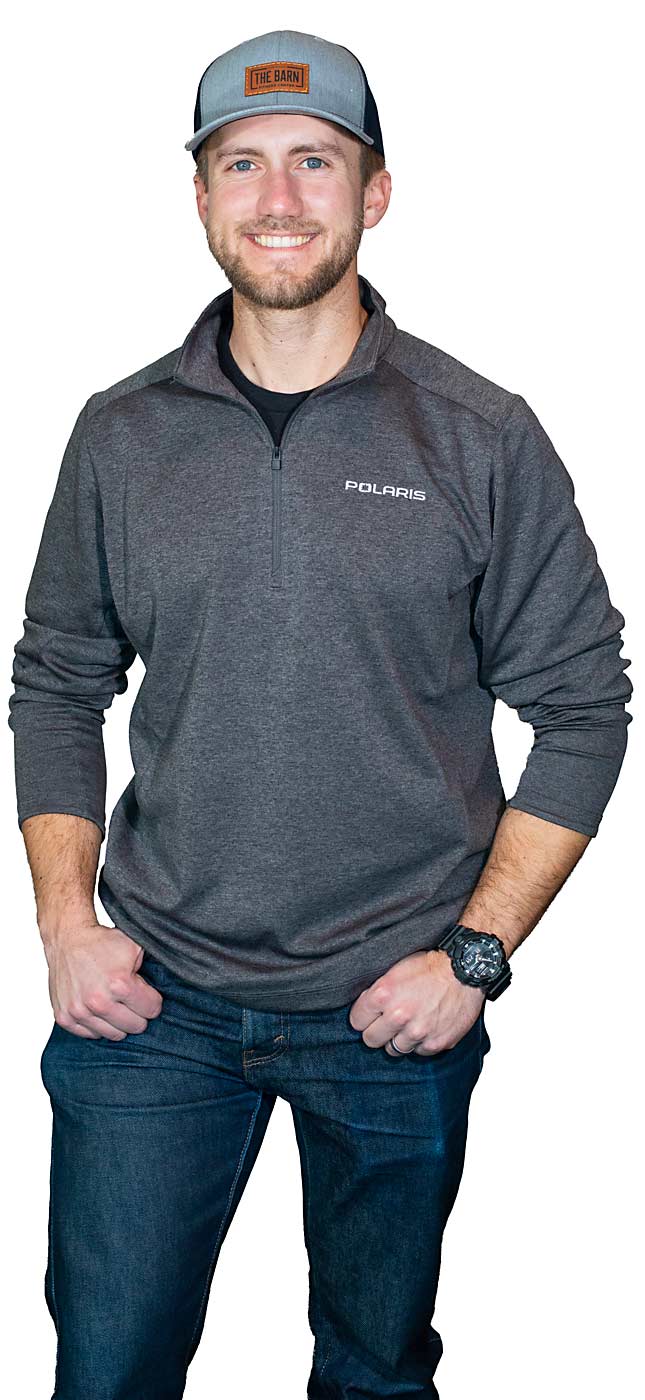family background/Devon grew up on a tree fruit farm, graduated from Washington State University with an integrated plant sciences degree and now works in the wine industry. He is married to Lauren Griffith and is the son of Heidi and Earl Griffith.
age/28
hometown/Manson, Washington
crops/grapes
business/Succession Wines and Alta Cellars
How did you get your start?
My earliest memories are of running around the old orchard on my little toy pedal tractor, pretending I was my dad. I loved everything about it. Unfortunately, our family had made the difficult decision to sell the land.

We still own a little bit of it, but we’re not farming it anymore. When that happened, I didn’t know what I wanted to do, when I was in high school. I didn’t want to be stuck behind a desk. I wanted to work with my hands.
I wanted to work with the soil and produce something from that hard work. I applied to WSU, even though I didn’t know what exact path I wanted to take. I just knew that I wanted to study agriculture.
I considered multiple options, going into orcharding or exploring the wine industry, which was new to me and exciting. I remembered that one of our neighbors put in one of the first vineyards in the area in 1998, and I thought it was crazy. I saw it grow, and now there’s hundreds of acres planted.
But what really clicked for me about working in the wine industry was how it allows me to be creative. That is an important part of a fulfilling career.
What struck me about the wine industry is how you take the knowledge you possess and the materials available to you, then you combine those things to make something that’s bigger, and more complex, and beautiful than when it was separate.
What are you doing in the winery?
We’re pretty lucky at the cellar because we’re a smaller operation and I get to have a personal relationship with all our growers. I want them to succeed, and they want you to succeed.
It’s good to work with them and explain what our goals are with the wine and what they’re doing on their end with their fruit. For instance, instead of making red wine from their grapes, we suggest that we want to do a rosé — or communicate about bumping up their canopy to get the tonnage up to maintain some acids, or have them be flexible enough to adjust pick times for us.
We also need to make sure we don’t mess it up, because we are showcasing their hard work. It’s a dream working with everyone, and it’s been fun.
What challenges are you taking on with growers?
I love seeing growers going out of the box of the typical Cabernet Sauvignon, Merlot, Chardonnay and Riesling plantings. They are planting these fun, exciting varietals that nobody’s probably ever heard of nor can pronounce. I get excited about making those wines because not many people have done it before.
You can do all the research you want, you know, taste traditional wines from Europe, taste the wines that people have done in Washington and figure out how you can take your vineyard or winery in a direction that you want it to go. In that process you can find the positives within that different fruit.
I enjoy having conversations with growers, say if they’ve got an odd open plot of land up on a hill and it is super steep: Why not plant a quarter-acre, three by three, of head-trained vines in granite shale soil to see what happens?
It could provide a unique wine that maybe has never been produced in that area before. Navigating changes, the excitement behind them and growing together is pretty neat.
What challenges are you working on in the vineyard?
There are challenges starting your own vineyard. It’s easier working at a well-established vineyard. It is a whole ’nother animal when you take that on yourself. To begin with, you have to understand the best plan for success with what you have.
What’s the aspect of your vineyard site? What is your light exposure? What is your risk of cold pockets? What does your rock and soil profile look like? I mean, it may seem simple until you find something like a bunch of boulders from glacial till underground that need to be removed before irrigation can be installed. In that case, it comes down to time, energy and effort.
With our new vineyard site, there’s a ton of rock there, and I’ve had the time of my life running equipment and getting it out of the ground. I love it, but it delayed our planting for two years — all because we were running into a lot more rock than we planned.
We’re still set to plant this tough property and take on the responsibilities of growing it and doing it the way we want to do. We’re excited about experimenting and being able to have that all in-house. We’ll be able to find out what a head-trained Syrah tastes like versus VSP-trained Syrah.
When you’re doing it yourself, you can do that. It’s under your control. If you’ve got the time and energy to do it, and you’ve got space, why not? It opens a lot of doors for expanding your knowledge and having some fun.






Leave A Comment